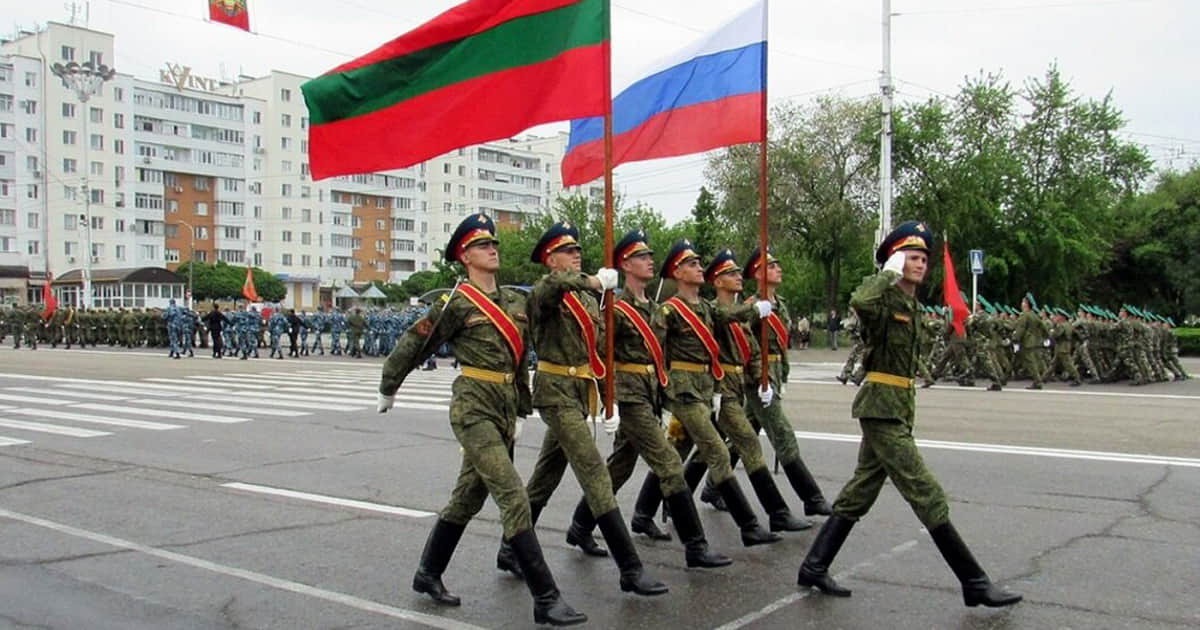Will Putin be able to undermine Transnistria

Transnistria on 28 February is set to convene a "congress of MPs from all levels," to allegedely officially appeal to Russia "accept Transnistria into the Russian Federation." In response, Russia may even announce the annexation of this Moldovan region, in the most radical development of events. In Moldova, however, this option is considered unrealistic because such a step would strike both Transnistria itself and Moscow's influence in the region.
However, logic in international decisions is not the Kremlin's strong suit. So, this suicidal scenario for Transnistria cannot be completely ruled out. Read more in the article by Sergiy Sydorenko, European Pravda's editor - Transnistria starts a dangerous game.
What separatists from Moldova will ask Putin for. The Transnistrian authorities name the economic problems and their alleged blockade by the Moldovan authorities as the official reason for this year's extraordinary gathering. But it sounds as an obvious exaggeration.
The leaders of Transnistria justified their actions with economic reasoning and the then blockade at the congress in 2006, which ended with a vote for "joining Russia." And in 2024, they don't even try to hide that the congress decisions will be about geopolitics rather than economics. At the same time, Transnistrian MP Vadim Kravchuk admitted in the broadcast of the Tiraspol TV channel TSV that the goal of the congress is to confirm that Tiraspol still wants to be integrated into the territory of Russia.
"Holding another referendum makes no sense, but it would be quite reasonable to confirm a previous decision...Transnistria expressed its desire to unite with Russia and the Eurasian Union back in 2006. The congress of the MPs of all levels will most likely confirm our intentions," he explained. Gennadiy Chorba, one of the few representatives of the Transnistrian opposition, was speaking in an even more straightforward manner, noticing a coincidence: the congress, where Russia will be addressed in one form or another, was urgently planned for 28 February.
And on 29 February, Russian President Putin will make a speech in the Russian parliament. Chorba concluded that the congress "will make a request about integrating Transnistria into the territory of the Russian Federation on behalf of the citizens residing on the left bank of the Danube River, and on 29 February, Putin will announce it in his address, and the Federal Council on an expedited basis. will adopt a decision to grant this request". In Chisinau, they are monitoring Transnistria's initiative, but they are not panicking about it yet.
Since they are well aware that similar decisions are definitely not made by the Transnistrian "authorities" alone, but coordinated with Moscow and probably even initiated by it. MP Oazu Nantoi, one of the few experts on Transnistria in the current composition of the Moldovan Parliament, believes that it is not in Russia's interest to legally declare the annexation of the left bank of the Dniester right now, especially without the appeal of Transnistrian MPs, which is absent. These considerations are logical and correct.
But there is one "but." In Russia, such decisions are made personally by Putin. He does not always follow formal logic.
And if the Kremlin dares to do so, this action will not bring any tangible benefits to Moscow. And even more disadvantageous is this potential decision for the Transnistrian political-business elites, for whom the desirable outcome is the preservation of the status quo for as long as possible. But this analysis does not take into account the factor of elections in Russia, as well as Putin's history of decisions, which ultimately turned out to be detrimental to him.
Considering this, even a radical development of the situation is quite possible. And the fact that the Transnistrian leadership does not seek immediate accession to Russia at war, even more so does not matter. It does not matter how exactly the decision of the current Tiraspol congress will be formulated.
After all, Putin already has a formal call for the annexation of the left bank of the Dniester, dated back to 2006, and now it is enough just to update it. So, Transnistria is now at a historical crossroads. The next week may turn out to be decisive for it.
If you notice an error, select the required text and press Ctrl + Enter to report it to the editors.